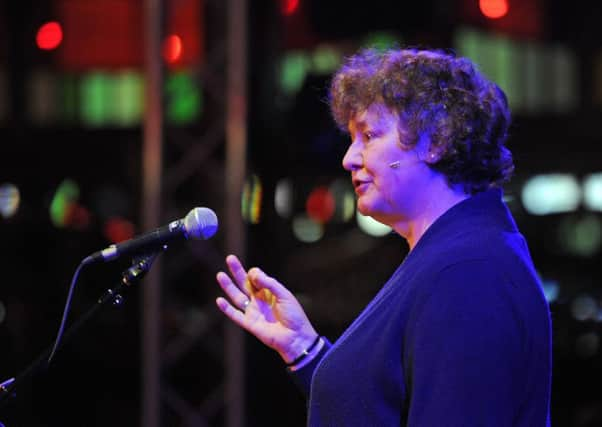Brian Ferguson: Scottish theatre brought to book in a timely way


I can’t imagine there was anyone gathered in the Traverse Theatre who had expected the event to play out against the fast-moving, chaotic and bewildering backdrop of the fall-out from the Brexit referendum.
But it also provided a fitting context for the publication of a book which “serves as a portrait of a nation and a shared cultural life”.
Advertisement
Hide AdThree and a half decades of McMillan’s reviews – many for The Scotsman and Scotland on Sunday – have been compiled in Theatre in Scotland: A Field of Dreams.
It looks all the way back to Glasgow’s reign as European Capital of Culture, and charts how Scotland finally got its own national company, whose early work surpassed even the expectations of many of its strongest proponents.
But many of McMillan’s reviews also track the huge changes in the political landscape since the early 1980s, when the Scottish theatre was suffering following the departure of so many prominent figures to London.
The final 20 pages reflect on the dawn of a new golden era in Scottish theatre over the past two years – with big, bold new productions of Hamlet, Waiting for Godot and Lanark – as well as the growing mood for political change.
It is fascinating to recall the timing of the premiere of The James Plays at the Edinburgh International Festival just before the independence referendum, and the revival of John McGrath’s The Cheviot, the Stag and the Black, Black Oil, staged at Dundee Rep a year on from the No vote, by which time Scotland was facing up to the reality of five more years under a Conservative government.
The last of McMillan’s brief commentaries in the book reflects on how, 35 years on, Scotland remains a “stateless nation,” albeit one that is “utterly transformed, and infinitely more self-aware.” As I read these words on the way home from the Traverse, I reflected on how long it would take the Scottish theatre world to get to grips with the new political landscape.
Advertisement
Hide AdMcMillan concludes from her own experience that theatre appears to run “a few years behind in its response to unpredictable events.”
However much that is true, the Brexit vote, the startling new political map of Britain and the fast-moving developments that have unfolded – north and south of the Border – in under a fortnight have certainly cast an intriguing new light on the 70th Edinburgh Festival next month.
Advertisement
Hide AdThe panel discussion at the Traverse offered a fascinating insight into the minds of those who will be staging and performing plays in the wake of the Brexit vote. Scripts and rehearsals may take an entirely new shape simply because the impact of the referendum will still be playing out in the minds of the audience.
A show that springs to mind is Glasgow Girls, the story of the schoolgirl campaign against the treatment of asylum seekers in the city, inspired by real-life events which unfolded a decade ago, but will now inevitably be seen in a whole new context when it makes its Fringe debut.
There is also the prospect of playwrights and artists responding to the challenge, at just a few weeks’ notice, of creating immediate Brexit responses. While the shock waves of the vote continue to be felt across Europe, it could well be the issue to electrify the audiences from around the world who will arrive in Edinburgh next month. It’s a tantalising prospect.